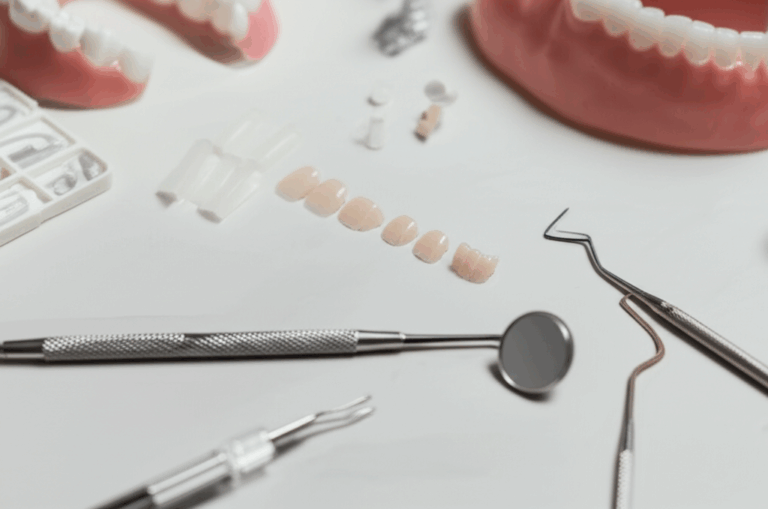
Can Your Dentist Perform a Root Canal? Understanding Qualifications and When to See a Specialist
Table of Contents
- Introduction: What I Learned When I Faced My First Root Canal
- The General Dentist’s Role in Root Canal Therapy
- Training, Licensing, and Scope of Practice
- Tools, Tech, and Techniques That Matter
- The Endodontist: What a Specialist Adds
- When I Refer Out or Ask for a Referral
- Success Rates You Can Trust (and How to Think About Them)
- How I Decide Who Should Treat Me (A Practical Framework)
- Questions I Ask My Dentist Before a Root Canal
- Comfort, Anesthesia, and Pain Management
- Safety, Ethics, and Standard of Care
- Special Situations That Change the Plan
- What Happens After the Root Canal: Crowns and Restorations
- Costs, Insurance, and Convenience
- Dental Tourism and Overseas Treatment: My Caution List
- Step-by-Step: What a Root Canal Actually Involves
- Healing, Longevity, and How to Prevent Failure
- Final Thoughts: Make a Confident, Informed Choice
Introduction: What I Learned When I Faced My First Root Canal
I remember the moment my dentist said “root canal.” I felt scared, and started worrying about money and had a lot of questions. Can my regular dentist do this? Do I need a special dentist? What even makes a case hard? I wanted a clear answer, but at first I didn’t get one. What I got instead was a better way to decide.
Here’s the simple version I wish someone told me right away. Yes, regular (general) dentists are allowed to do root canals, and many do them all the time with good results. Endodontists are special dentists who handle the hardest teeth and usually get the best results with tough problems, do-overs, or surgery. The tricky part is figuring out if your tooth is an easy one or a hard one.
In this guide I’ll show you how I look at root canals, both as someone who needed one, and someone who looked into what training, tools, and picking the right cases have to do with success. I’ll tell you what regular dentists learn, what extra school endodontists go to, what equipment really helps, and the questions I ask before agreeing to treatment. If you want to know about who is qualified and when to see a specialist, this is for you.
The General Dentist’s Role in Root Canal Therapy
When people ask me, “Can any dentist do root canals?” I answer: Every licensed regular dentist learned the basics of root canals in school. They can find out what’s wrong with a tooth, do the main part of a simple root canal, and put in a filling or crown afterward.
In many dentist offices, the regular dentist does the easy ones. This means front teeth or some side teeth if the roots aren’t bent or squiggly. They check your teeth, look at x-rays, and come up with a plan, which might be a root canal, crown, or sometimes pulling the tooth. They also decide when to call in a specialist.
I’ve seen family dentists do great work on easy teeth. I’ve also seen these same dentists look at a hard tooth and say, “Let’s call a specialist.” Making this judgment is part of doing what’s right for patients.
Training, Licensing, and Scope of Practice
Here’s how things work in the US and Canada:
- Dental school: During their D.D.S. or D.M.D. years, regular dentists have classes in root canals. They learn how to tell what’s wrong with the tooth, clean out the inside, and put the tooth back together. They practice on front and back teeth before they graduate.
- License and what they’re allowed to do: After school and getting their license, a regular dentist is legally allowed to do root canals. Dental Boards make the rules and watch that dentists do their jobs right.
- Extra learning: Some regular dentists keep learning more about root canals through courses. These classes cover things like electric tools, special measuring, and new machines. I’ve seen there’s a big difference between dentists who do lots of root canals and buy new tools versus those who hardly do them.
Groups like the American Dental Association (ADA) give advice about what’s safe and good care. The American Association of Endodontists (AAE) gives tips on which cases to take or send away. You can ask your dentist how they keep learning. I always do. It says a lot about how they think.
Tools, Tech, and Techniques That Matter
You can learn a lot just by looking at what tools are in front of you and what x-rays are on the screen. Here’s what, in my view, really helps make root canals more successful.
- Digital x-rays and 3D scans: Basic digital x-rays are normal now. Cone Beam CT (CBCT) shows three-dimensional pictures, helping find extra roots, cracks, and other problems which don’t show up on a basic film. Not every regular dentist has CBCT, but they can send you out for one if they need to.
- Dental microscope: These don’t just magnify—they shine a bright light and help spot hidden parts of the tooth. Endodontists use one every day. Some regular dentists do too. I like dentists who use these for back teeth or hard cases.
- Rotary tools and measuring gadgets: Electric tools with bendy metal files help clean out the canal. A tiny machine measures the length of the root, making things more exact. Both make it easier.
- Ultrasonic and tiny tools: These help get rid of blockages or find hard-to-reach spots in the tooth. Having these around is helpful for tough jobs.
- Filling and sealing: Warm filling techniques, carriers, and special sealers can all do a good job. Gutta-percha is still the main material for filling the canal.
- Cleanliness: Using a rubber dam (the blue sheet that covers everything but the tooth) is a must. So is cleaning the tools. You can ask to see these steps. I do.
Can a regular dentist do a root canal without all the fancy tools? Yes. Should anyone try a tough back tooth without good equipment? That’s where making a smart choice or calling a specialist comes in.
The Endodontist: What a Specialist Adds
Endodontists only work on the tooth nerve and surrounding area. After dental school, they do 2-3 more years (residency) focused just on root canal problems, tough cases, redos, surgery, and research.
From my experience, a specialist brings three big things:
- Loads of practice: Endodontists might do 10 to 20 or more root canals every week. They see all the weird shapes, blocked paths, and failed old root canals all the time. Practice makes better.
- Better tools and methods: They always use a microscope. They use CBCT when needed. All the latest gadgets are normal for them. Surgery (like an apicoectomy) is just another day at work.
- Handling hard cases: They take care of molars with more roots, cracked teeth, injuries, and infections that just won’t go away.
If your tooth looks pretty tough, I go straight to an endodontist. You’ll probably get it fixed faster and with fewer problems.
When I Refer Out or Ask for a Referral
Here’s when I think a specialist is needed:
- Weird root shapes: Upper back teeth with lots of twisty, hard-to-find canals, narrow roots, extra roots.
- Redoing a root canal: If a old root canal failed, a specialist is best.
- Tooth injury: If a tooth is broken or knocked out.
- Blocked or closed-up canals: Really hard to get into without special tools.
- Pain won’t go away: If you still hurt or are infected after a root canal.
- Need for surgery: Root-end surgery.
- Medical issues or anxiety: Specialists can offer good options to keep you calm and safe.
A good dentist will send you out for these. That’s not a bad thing—it means they care about getting it right.
Success Rates You Can Trust (and How to Think About Them)
Everyone likes numbers, me too. But numbers only tell part of the story—how easy the tooth is, what the real problem was, and the final repair matter, not just who did it.
- What counts as a win: No pain, no swelling or infection, healthy bone on x-ray, tooth works for eating.
- For easy cases: Studies show 85% to 95% make it 5-10 years if done well and finished right.
- For tough cases and redos: Specialists tend to do better because they use better tools and have more experience. This difference is bigger on hard teeth.
- Technology helps: More advanced x-rays and microscopes help find problems and miss less. Not every tooth needs all the fancy stuff, but some do.
So, pick the right dentist for how tough your tooth is—that’s how you get the odds in your favor.
How I Decide Who Should Treat Me (A Practical Framework)
When I’m deciding between regular dentist and specialist, here’s the list I use:
- Which tooth: Front or side teeth with a straight root—maybe regular dentist. Back teeth with lots of roots—see a specialist.
- What’s going on: Easy-to-spot nerve problem or a dead tooth with an obvious abscess? Good for general dentist. Weird x-ray or possible crack? Go see the specialist.
- What tools do they have: If my dentist uses electric tools, measuring gadgets, and a microscope, I feel better about them doing a simple back tooth. If not, I lean toward specialist.
- How often do they do this: I ask, “How many root canals like this do you do each month?” and “How often do you have to redo them?” I listen to how they answer.
- Will my tooth be fixed right: The final repair (crown or filling) matters a lot. If the office will do a good job quickly, that’s safer.
- How fast and easy: If I want to be done in one visit on a tricky tooth, I pick the endodontist. With a front tooth emergency, my regular dentist could handle it right away.
This way, I avoid problems and keep things simple.
Questions I Ask My Dentist Before a Root Canal
I keep these handy and I always ask, no matter what.
- How often do you do root canals? On back teeth? On front teeth?
- What classes have you taken about root canals lately?
- Do you use rotary tools, measuring gadgets, and a microscope?
- Can you use CBCT if you need it?
- For this case, what’s your success rate and how do you decide it’s a win?
- If things get harder than you thought, will you send me to a specialist, even mid-treatment?
- Would you see a specialist for this tooth? Why or why not?
- Is this going to be done in one visit or more than one? What are the pros and cons?
- What’s the plan for fixing the tooth afterwards? Crown? Filling? How soon?
- Can I talk to a specialist before doing this?
Their answers tell me a lot about confidence, tools, and honesty—which helps me trust them.
Comfort, Anesthesia, and Pain Management
Let’s talk about being comfortable. Numbing shots for a root canal work really well. I’ve had back teeth totally numb with new methods. If you’re nervous, ask about laughing gas or a calming pill. Some specialists offer IV medicine through an anesthesiologist. Not everyone needs deep sedation, but everyone should feel no pain.
Feeling sore after is normal for a day or two. Over-the-counter pain pills like ibuprofen usually are enough. Sometimes dentists mix ibuprofen and Tylenol. If you have a lot of swelling from infection, you might get antibiotics for a few days. I only take them if the dentist says so.
If your pain hangs around or gets worse, call the office. Don’t wait.
Safety, Ethics, and Standard of Care
I look for a dentist who follows safe, smart steps:
- Talk about everything first: You should know your problem, your choices, the risks, possible costs, and what to expect. Ask for paperwork.
- Safety first: Tools must be clean and always use a rubber dam.
- Do the right thing: Dentists should recommend what they would pick for their own tooth. If someone seems just interested in money or rushing, I look for someone else.
- Rules and groups: Dental boards and ADA/AAE guidelines are there for a reason. Good dentists are fine with your questions.
If a dentist says you should see a specialist, take their advice. That means they care about how things turn out.
Special Situations That Change the Plan
Sometimes, things change fast:
- Cracked tooth: A crack under the gum might mean the tooth can’t be fixed with a root canal. Specialists have more ways to spot these cracks.
- Blocked canals: As you get older, root parts get smaller. Special tools can help, but sometimes it’s too hard or unsafe to finish. That’s time for a specialist or to rethink the plan.
- Emergency: If you’re hurting badly or have a big abscess, quick treatment matters. A regular dentist may start things, but a specialist could finish it if the tooth is tricky.
- Redos and surgery: If a past root canal didn’t hold up, a do-over or even a mini surgery (apicoectomy) might be needed. This job is best for a specialist.
- Accident: Broken or knocked-out teeth need a dentist who’s used to handling trauma.
- Health or anxiety issues: If you have big health problems or are very, very nervous, find a place with good sedation and medical backup.
What Happens After the Root Canal: Crowns and Restorations
Here’s something I learned the hard way: the root canal saves the tooth, but the repair (crown or filling) protects it from breaking. Teeth in the back usually need a crown. Front teeth can sometimes just get a filling, but not always. Ask your dentist what’s right for you.
Dentists may use different labs to make crowns, depending on what your tooth needs:
- Zirconia crowns are really strong for back teeth. A good zirconia lab makes sure they last and fit well.
- Lithium disilicate crowns (often called e.max) look great and are tough for side and front teeth. A good e.max lab gets the color and fit right.
- Porcelain with metal and gold crowns can work too, even if they’re not as popular now. Pick what matches your needs.
Don’t wait too long to finish the repair or your tooth can crack or leak—schedule the crown quickly. Many offices now use digital scans and 3D printing to make everything fit right. If your dentist works with a modern digital dental lab or a dental ceramics lab, you’ll probably get a better-fitting crown, faster.
Want more info on restorations?
I don’t just follow trends. I ask the dentist to explain if I need more strength or a better look, then make the call.
Costs, Insurance, and Convenience
Let’s talk about money. Root canals with a general dentist usually cost less than at a specialist. Insurance sometimes pays the same, sometimes not. Back tooth root canals cost the most.
Here’s what I think: price and convenience count, but getting it done right is more important. If the tooth is tough and an endodontist can finish it in one go, I’ll pay extra. If my regular dentist is good with my case, I stick with them. This isn’t about being loyal—it’s about picking the best for the job.
If you’re thinking about going overseas for cheap treatment, make sure you check their training, equipment, and cleaning rules. Always check their license and ask what happens if something goes wrong when you’re home again. A cheap job is no bargain if you need to get it redone and can’t see the original dentist again.
Dental Tourism and Overseas Treatment: My Caution List
Going to another country for dental work works for some, but root canals need follow ups and usually a crown later. If you travel:
- Make sure the dentist really works on root canals.
- Ask if they have a dental microscope, rotary tools, and a 3D scanner.
- Get all the forms and aftercare in your own language.
- Think what you’ll do if things go wrong and you’re already home.
I wouldn’t take a gamble on a tricky root canal far from home. Simple front teeth maybe, but I still check their standards closely.
Step-by-Step: What a Root Canal Actually Involves
Knowing what’s coming helps keep nerves away. Here’s what happens for a normal root canal:
1) Checking: Your dentist or specialist takes x-rays and does tests to know exactly what’s wrong. Sometimes they need a CBCT scan for a better look.
2) Numbing and cleaning: Local anaesthetic gets the tooth numb. A rubber dam covers your mouth so no germs get in.
3) Getting to the problem: The dentist drills a hole in the tooth to find the canals inside—they use bright lights or a microscope to see.
4) Cleaning out the root: Hand files or rotary machines remove the bad stuff and shape the canals. A little machine measures how long the root is. Cleaning fluids rinse out germs. Ultrasound tools can break up extra junk and help get into small areas.
5) Filling it up: When clean and dry, they fill the root with a rubbery material and special glue. They put a temporary or permanent cap on top.
6) Final repair: A crown or strong filling is put on the tooth to keep it from breaking.
Some cases finish in one go. Others need medicine put in the tooth and a second visit. It depends on your tooth. Surgery (apicoectomy) is when they fix the tip of the root by going in from the side. Only a specialist does this.
Healing, Longevity, and How to Prevent Failure
After your root canal, give your tooth and nearby bone some time to heal. Here’s what I look out for and do myself:
- Short term: It might feel sore for a few days. Chew on the other side until you get the final crown or filling.
- Final step: Don’t put off getting that crown on a back tooth! Waiting too long can cause it to crack.
- Keeping it clean: Brush, floss, and if you grind your teeth while sleeping, use a night guard. Grinding can break your repaired tooth. Ask your dentist if you might need one.
- Follow-up x-rays: You might get a check-up x-ray in 6-12 months to make sure everything’s healing.
- How to avoid problems: The biggest risks are missed canals, a bad crown or filling, or a big crack. Using better tools and a good repair lowers those risks.
How long will my root canal last? If done well and fixed right, many last for decades. I take care of my tooth like it’s worth a lot—it is!
Final Thoughts: Make a Confident, Informed Choice
So—can regular dentists do root canals? Yes. They’re trained to do them, and many do fine on easy teeth. Endodontists do even more school and handle the harder stuff, redos, and root-end surgery using the best tools.
How do I pick?
- If it’s a simple tooth and my regular dentist has the skill and the right tools, I let them do it.
- If it’s a tough or confusing tooth, I see the specialist.
- I always ask questions until I feel good about my answers, and I always make sure to get the tooth repaired after.
- I trust places that follow real science, safe steps, and explain things well.
You don’t have to just guess. Use my questions and tips. Match the difficulty of the tooth to the experience of the dentist. That’s how you keep things pain-free and your smile safe.
Key takeaways:
- Regular dentists can do many root canals well.
- Endodontists are best for tough cases, redos, and have more practice plus advanced equipment.
- Fancy tools help most when the root is tricky.
- A strong crown is as important as a good root canal.
- Ask clear questions so you can decide with confidence.
If you need a root canal right now, breathe easy. You have choices, and now you know how to pick the best one.








